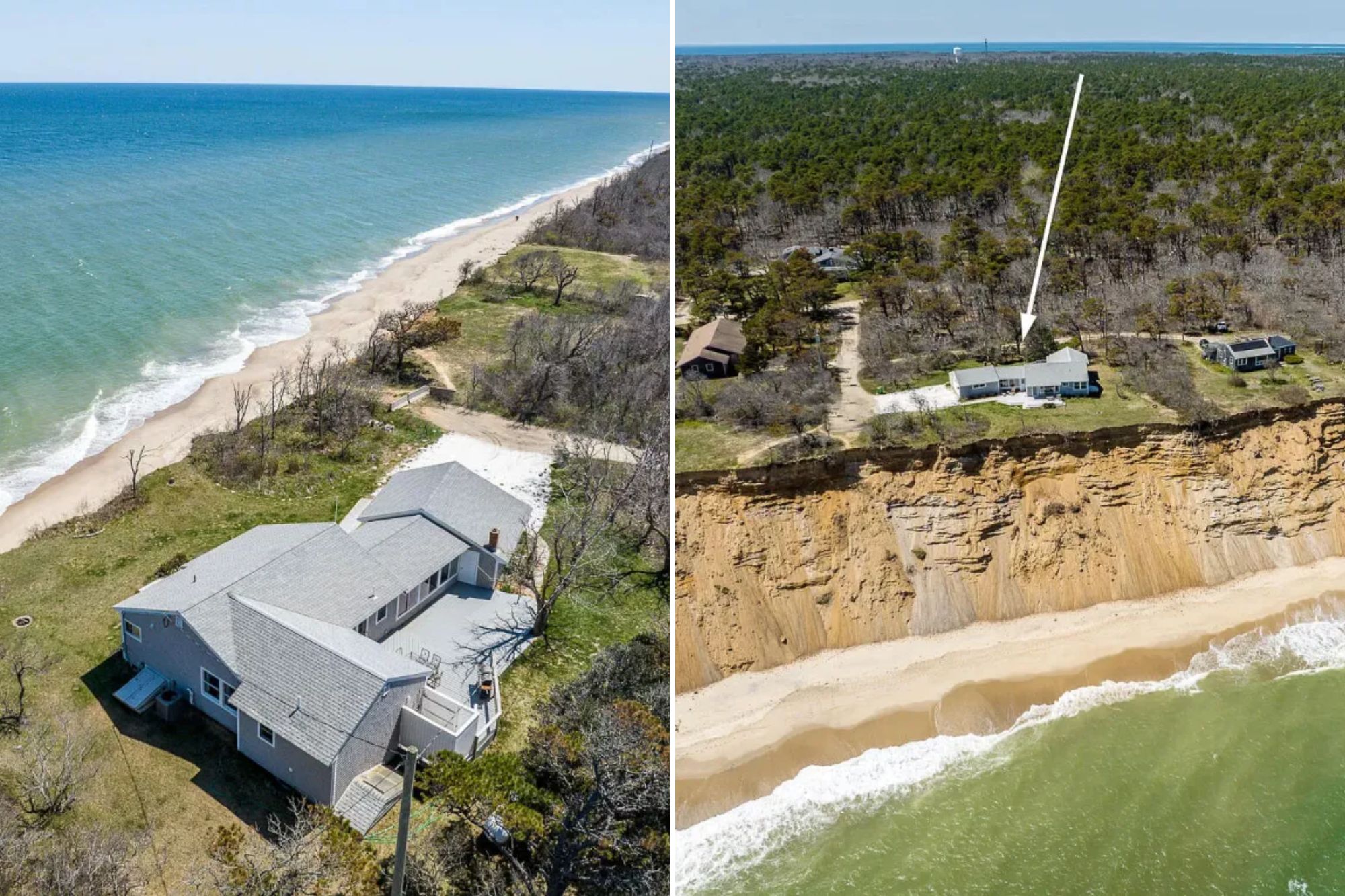
David Moot had always fantasized about owning a beachfront retreat on Cape Cod, but never thought he could afford it until he found a coastal gem listed for just $395,000.
At roughly half the median sales price in the area, according to recent appraisals, the listing seemed too good to be true. And it was — the affordable slice of paradise at 157 Brownell Road in Eastham could soon be swept away by the Atlantic.
Charming, 3 BR, 2 BA cottage sits just 25 feet from an eroding bluff, with the tide line projected to creep three feet closer each year. Within a decade, the house could be lost to the waves. Moot, 59, shrugged and dived.
“Life is too short,” he told Bloomberg in an interview. “Let’s just see what happens. It will eventually fall into the ocean, and it may or may not be in my lifetime.
Moot’s purchase is part of a growing trend in expensive oceanfront enclaves where risk-tolerant hunters are snapping up dream properties at bargain prices.
On Nantucket, where the elite flock every summer, a waterfront home listed at $1.9 million recently sold for a staggering $200,000. (“Eventually the ocean will win,” new owner Don Vaccaro resignedly told the local paper.)
This new breed of beach buyers is gambling on a climate future that is far from certain, as rising sea levels and more powerful storms put billions of dollars worth of prime real estate at risk.
“Between 50 and 100 years from now, there are communities that will be underwater,” Dylan McNamara, a professor of oceanography at the University of North Carolina, Wilmington, told Bloomberg. “It’s only a matter of time before those property values go down.”
On Nantucket, where winter storms have eroded the shoreline, some areas have lost more than 12 feet of shoreline per year. The destruction has left homeowners with difficult choices.
“The hard conversation is with the landlords,” said Shelly Lockwood, a real estate agent on the island. “They’re losing millions and they thought they were going to leave it to their grandchildren. Now, their homes are worthless.”
Some properties are in such jeopardy that the National Park Service has begun buying them up and destroying them — to keep the trash from washing up on beaches.
The Outer Banks in North Carolina, a major vacation spot, has already seen six homes washed into the sea since 2020.
“They should never have been built,” added Eric Braojos, a local real estate broker. Even with the risk, demand for beachfront property remains strong, especially in areas where cities have artificially extended beaches. But as insurance costs rise and lenders shy away from financing homes that may soon be underwater, property values are expected to fall.
“If you want to buy the house, you’re going to have to pay all cash and you can’t insure it,” Lockwood warned. “It will make the pool of buyers much smaller.”
For now, Moot is happy—even if that happiness comes with an expiration date.
And he’s thinking of ways to make the most of his time at home — even toying with the idea of turning the cottage into a retreat for terminally ill patients, or opening the property to day visitors so they can can be submerged. even in beauty.
“This is such a wonderful dream come true for me that I would love to be able to share it,” he said. “I’d like people to enjoy it as much as I can.”
#bought #beach #house #Cape #Cod #395k #fall #ocean #living #dream
Image Source : nypost.com